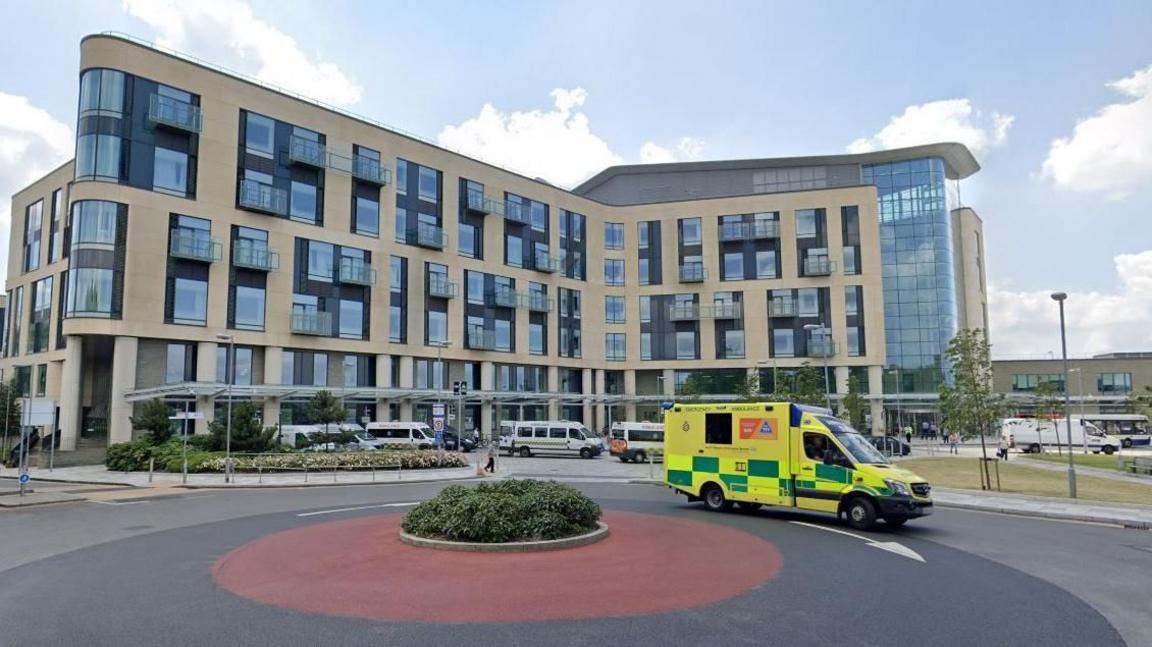Hospitals reintroduce masks amid rise in flu cases
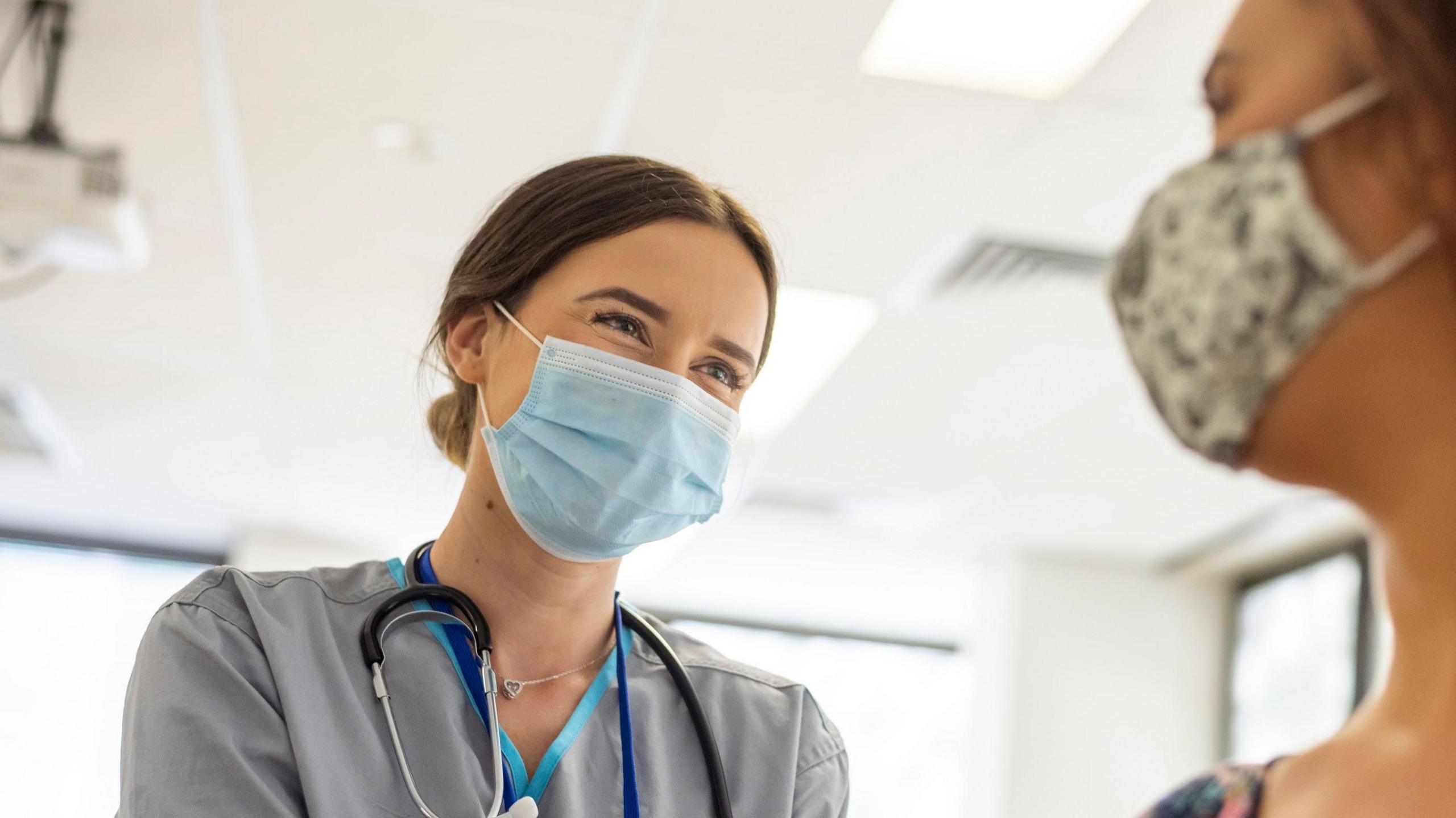
Masks will be provided on site by the NHS trust
- Published
Hospital bosses have urged patients, staff and visitors to wear surgical face masks to combat a surge in flu cases.
A spokesperson for Southmead Hospital in north Bristol said they have seen a "sharp rise" in flu and respiratory illness – particularly since the start of the year.
To limit the spread, health chiefs urged people visiting and working in the "emergency zone" to wear face masks provided on site.
This zone covers the emergency department, acute medical unit, acute frailty unit and the same day emergency care team.
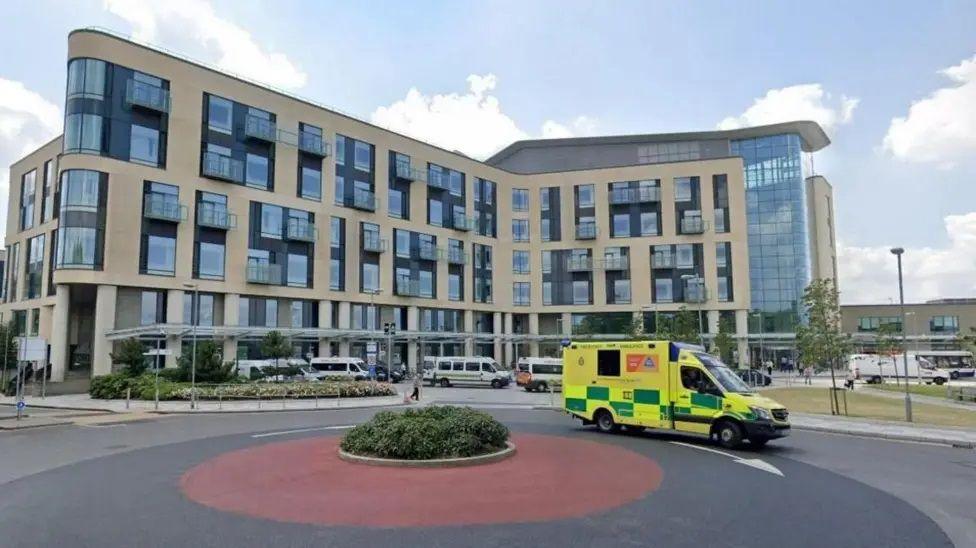
Visitors with coughs and colds have been asked to stay away from the hospital for now
Hospital bosses said the measures would remain in force only "for as long as they are strictly necessary".
People with respiratory symptoms such as coughs and colds have also been asked to avoid visiting family and friends in hospital, and to contact the relevant ward team to discuss alternatives.
Elsewhere, NHS Gloucestershire has warned this morning that emergency departments in Cheltenham and Gloucester are "very busy" with "sick patients who need specialist care".
They said only those with life-threatening conditions or serious injuries should go to the hospital – others should use the online service ASAP Glos NHS or call 111.
'Extreme pressure'
Somerset NHS Trust has said it is experiencing "extreme pressure" on its services, urging people who can to attend attend hospital alone due to limited space in waiting areas.
A statement published by the trust also warned that some non-urgent, planned treatments and appointments may need to be postponed, but urged people to attend their existing appointments.
Dr Paul Foster, director of Yeovil District Hospital, told BBC Radio Somerset: "If you're visiting vulnerable members of your family, then [wearing a mask] might be a very sensible thing to do.
"Certainly if you've got any mild symptoms yourself you should really limit your contact with other people, especially with more vulnerable people."
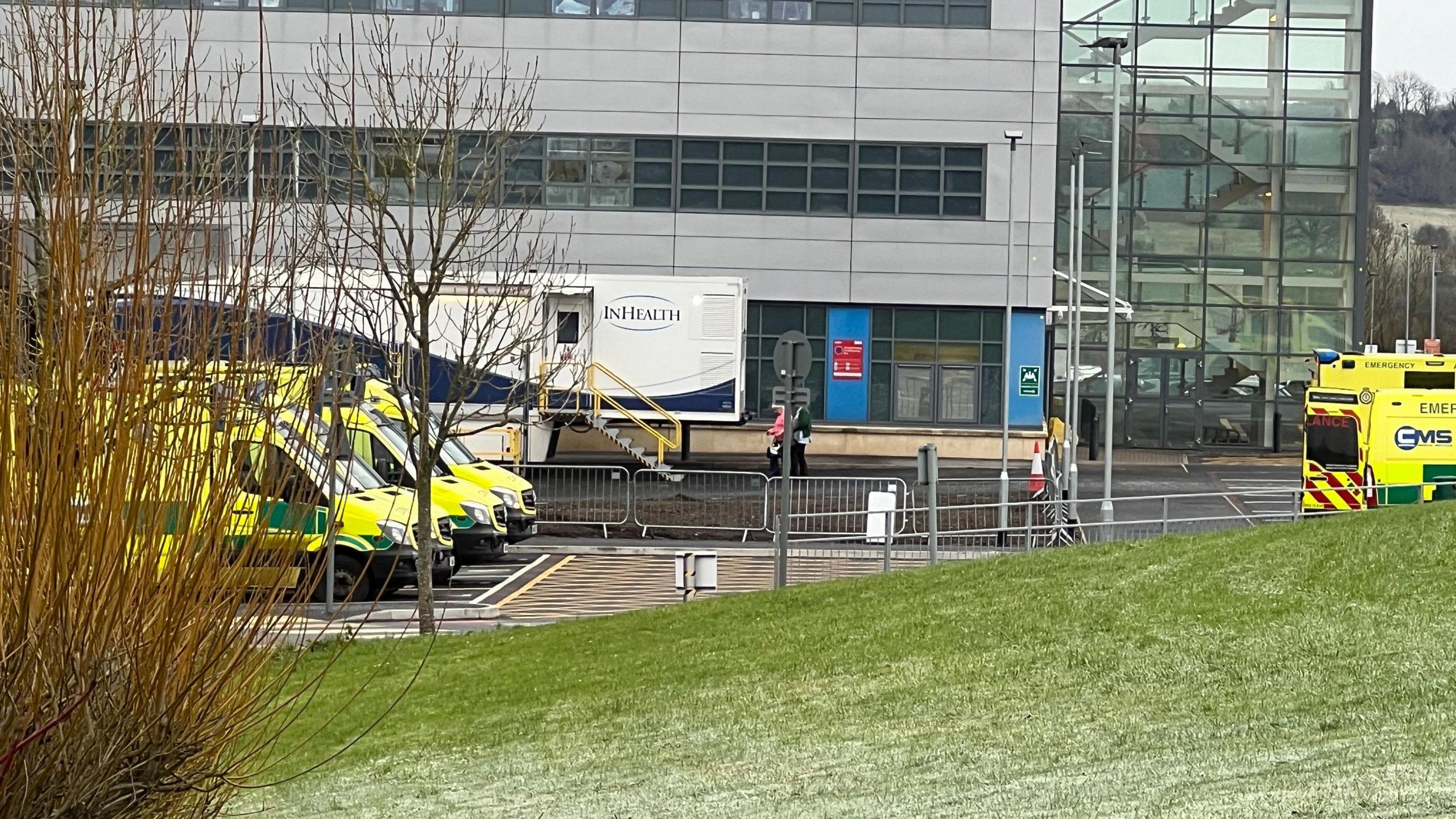
Hospitals in Wiltshire are also facing significant pressure amid a spike in flu
At Salisbury District Hospital in Wiltshire, mask-wearing is being pushed only in the wards where patients with flu are being treated.
The hospital says it is seeing around 180 to 200 patients each day in the emergency department, up 10% on last year, and of the 49 respiratory patients being treated 30 have flu.
The average number of flu patients in hospital in England in the last week of December was 4,469 – four times the level it was a month previously, according to NHS data, with officials warning cases are "rising at a very concerning rate".
It is expected that this week's data, to be published on Thursday, will show another increase in flu admissions.
NHS England's national medical director, Professor Sir Stephen Powis, said: "Frontline NHS staff are under significant pressure and the demand is showing no signs of letting up."
He said flu cases had "skyrocketed" to more than 5,000 and trusts across the country were declaring incidents to help them to manage the additional strain.
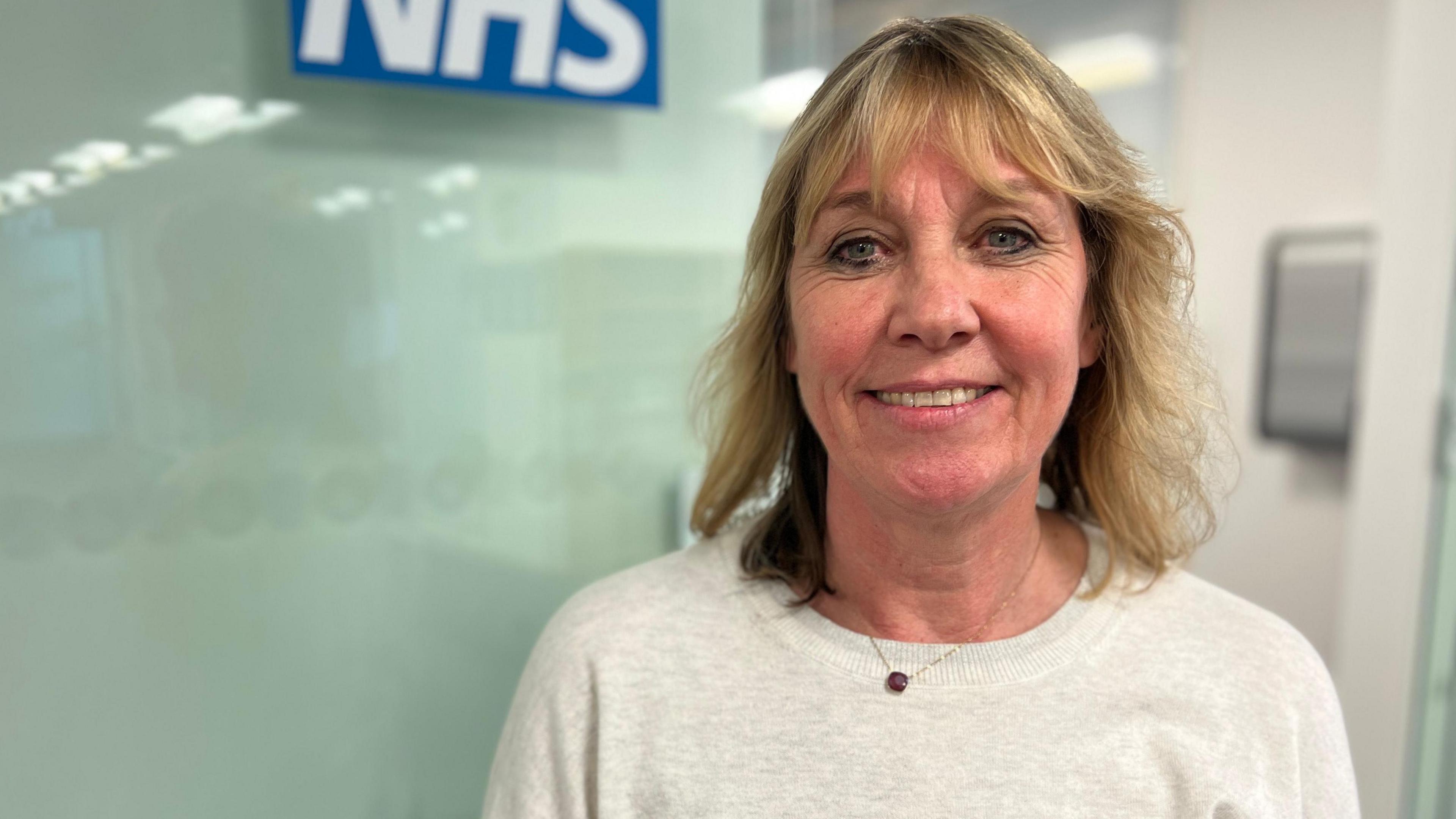
Ms May said wearing masks in a hospital is not currently mandated but "will always be advised"
Gill May, chief nurse Officer for the Swindon, Wiltshire and Bath NHS Integrated Care Board (ICB), warns the illness could become debilitating.
"This year, what we have seen is the prevalence of people needing to go to hospital because of flu," she said.
"It's more than we had expected and people are sicker because of it, despite being taking up the vaccination. Some people are really, really poorly and need to be hospitalised."
Ms May advised patients to expect long wait times of up to four hours "or an awful lot longer" to be seen.
"If you get 100 people through your front door, you need at least 100 to go out of the building, so it's trying constantly to get that balance right," she added.
A spokesperson for Great Western Hospitals NHS Foundation Trust said 17% of patients - around 100 people - are currently occupying beds that are ready for discharge.
They added: "For many people, flu-like symptoms such as headaches, fevers and sore throats can be easily managed at home through a combination of resting, staying hydrated and safely making use of common medicine box items, such as paracetamol and ibuprofen."
Get in touch
Tell us which stories we should cover in Bristol
Follow BBC Bristol on Facebook, external, X, external and Instagram, external. Send your story ideas to us on email or via WhatsApp on 0800 313 4630.
- Published5 December 2024
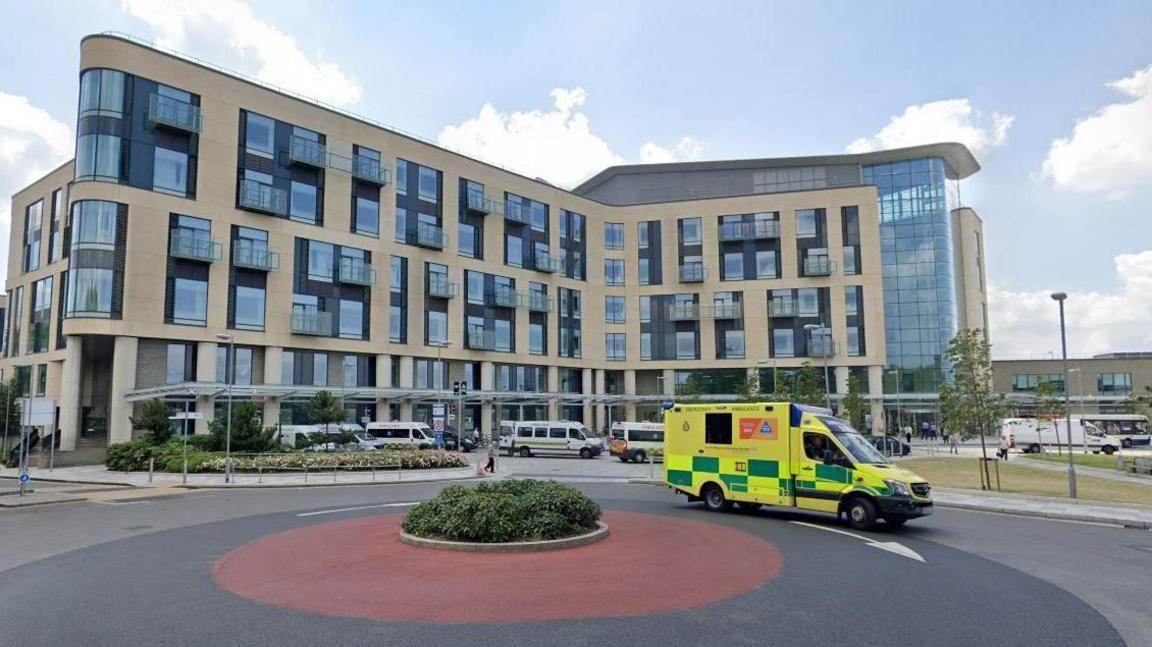
- Published4 December 2024
